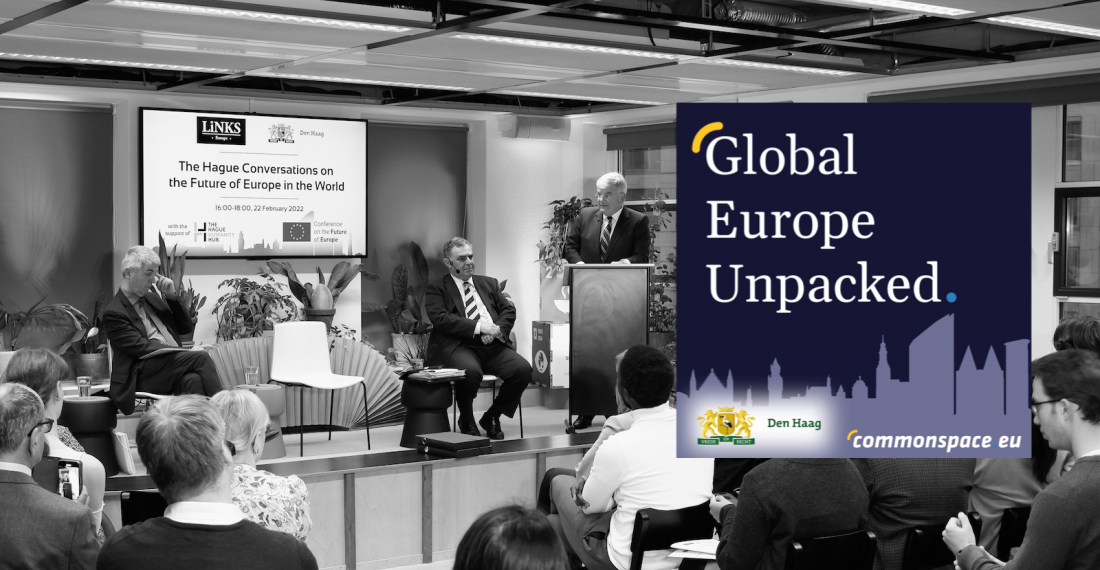“I think what is important is that the issue of international affairs is understood not to be an elitist sphere but something that impacts the lives of everyone in one way or another; and as a result, discussions on foreign policy need to be extended to include the wider citizenry. This is a challenge going forward and an increasingly important one.”
[The podcast is also available on all of the usual channels, including Apple Podcasts, Spotify and Google Podcasts]
In series two of Global Europe Unpacked, commonspace.eu is collaborating with the City of The Hague to bring you several conversations looking at the future of Europe in the world. This series runs alongside the EU’s largest citizen consultation to date, the Conference on the Future of Europe. Our objective is to spark your interest in some of the important issues under discussion and encourage you to get involved.
Since September 2021, the action-oriented thinktank LINKS Europe and The Hague Municipality, with the support of The Hague Humanity Hub, have hosted a series of 10 citizen-dialogue events on various issues of international concern. Titled, ‘The Hague Conversations on the Future of Europe in the World’, the events ran in framework of the EU’s Conference on the Future of Europe, and were a chance for European citizens to share their thoughts and ideas on the what the EU is doing and what it needs to do better.
The final report summarising the prevailing trends and ideas to come out the series of citizen dialogues can be found here, and the reports from each of the thematic events are available here
To unwrap the main findings of the events series, in this episode, Will Murray is joined by Dr Dennis Sammut, the Director of LINKS Europe and Managing Editor of commonspace.eu. There are also excerpts from speeches by the European Commission’s Ivo Belet and the Mayor of The Hague, Jan van Zanen, from the closing event of The Hague Conversations in the Future of Europe in the World, which took place at The Hague Humanity Hub on 22 February 2022. You can watch the full video from the closing event here.
Amongst other things, this episode covers:
- The prevailing thoughts and ideas to emerge from The Hague Conversations on the Future of Europe in the World
- The need for the EU to listen and communicate better with citizens, and to better involve citizens in international affairs
- Why discussion on EU softpower has not been made superfluous by the invasion of Ukraine
- How the concept of a global Europe is perceived by European citizens
- The primary importance of the EU’s neighbourhood in realising its global ambitions
- Why it is important to bridge the gap between the local and the international
- The role of the City of The Hague and other municipalities as bridges between the EU and local citizens
The Conference on the Future of Europe’s online platform can be accessed here.






